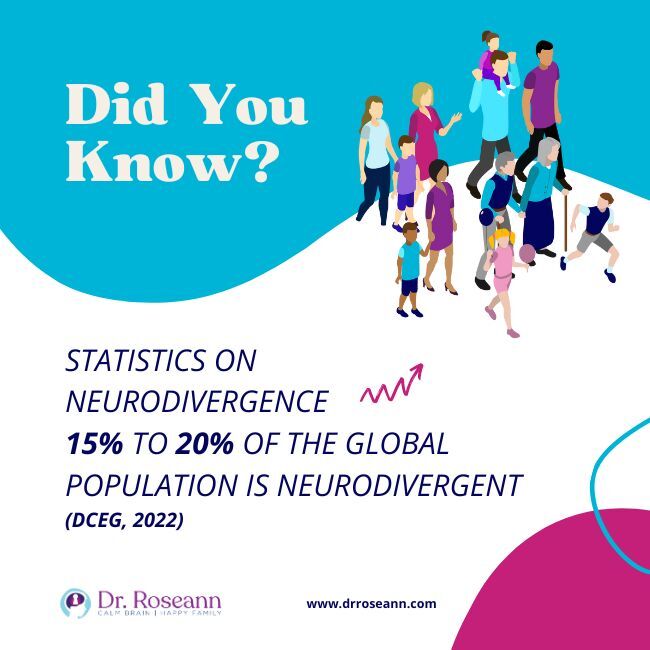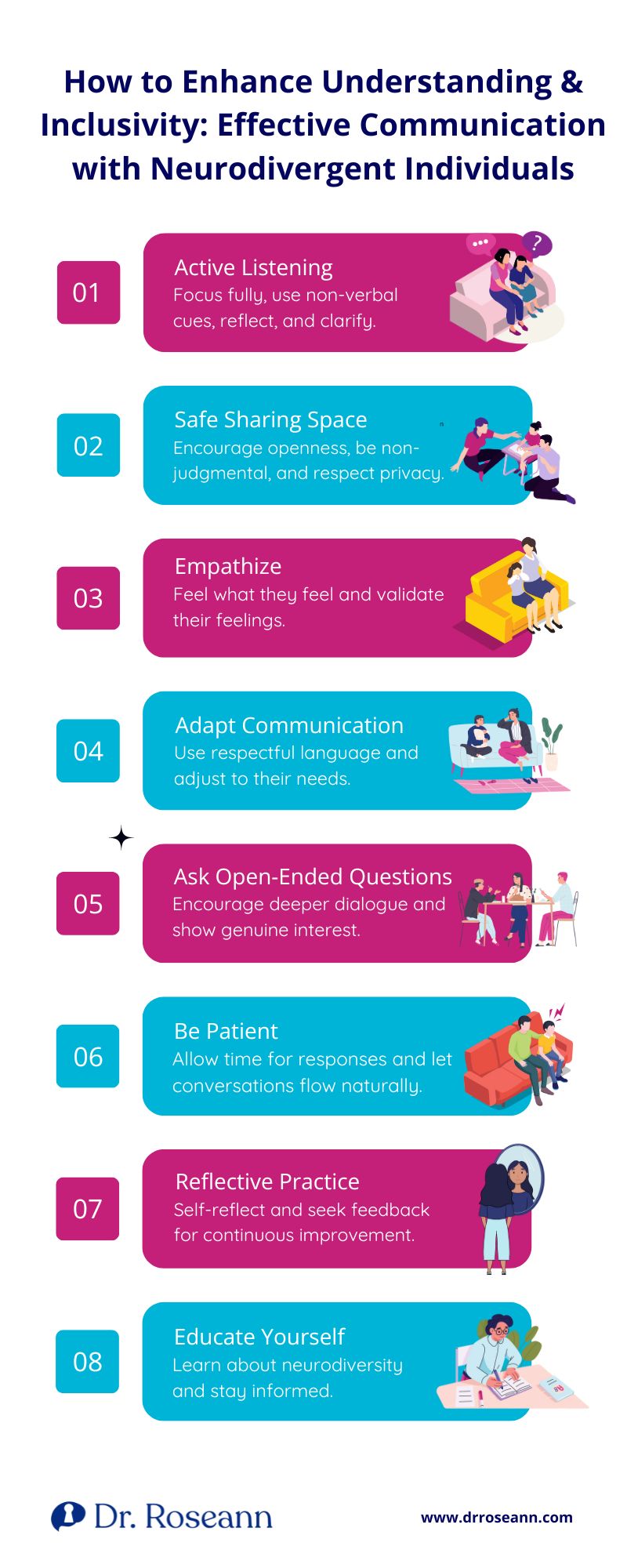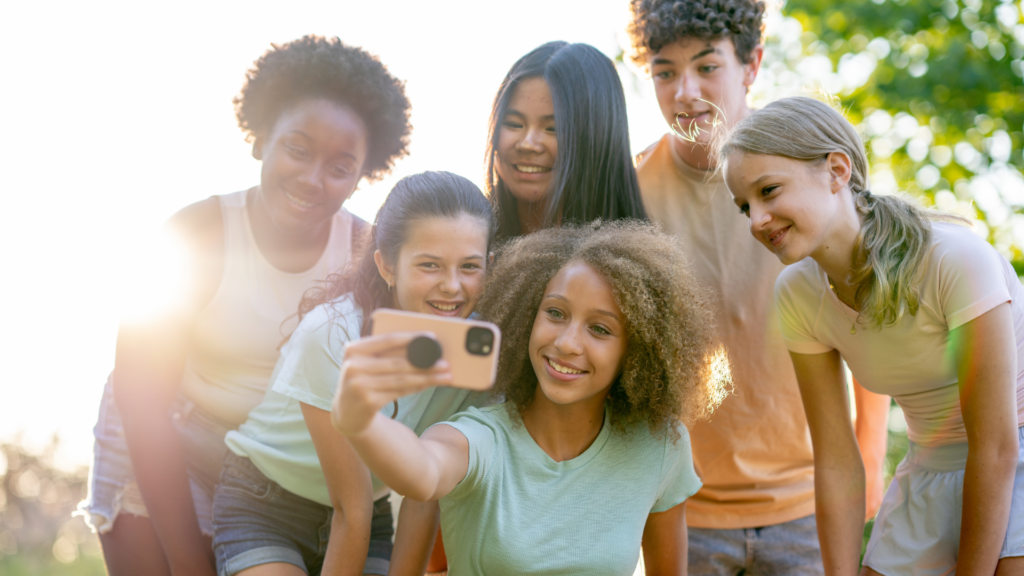As a leading expert in the field of mental health, I am often asked about the prevalence of neurodivergent individuals in our society. Neurodiversity is a concept that recognizes and celebrates the natural variation in human neurological development. It covers a wide range of brain variations such as autism, ADHD, dyslexia, and etc., which is what I have increasingly seen rise over three decades of working with neurodivergents.
Now, you might be wondering what percentage of people are neurodivergent?
This question is as complex as the human brain itself. While exact figures may vary depending on definitions and diagnostic criteria, neurodiversity statistics suggest that approximately 15% to 20% of the global population is neurodivergent (DCEG, 2022).

Yes, you read that right—the neurodivergent numbers comprise up to one-fifth of humanity!
What Does it Mean to be Neurodivergent?
Neurodivergent children have brains that function, learn, and perceive the world in ways that differ from the neurotypical population. Rather than viewing these differences as deficits, it's crucial to recognize them as unique variations that contribute to the rich human experience.
Embracing neurodiversity entails creating an inclusive society where all individuals—regardless of their neurological makeup—have equal opportunities to thrive. It involves fostering environments that accommodate diverse learning styles, communication preferences, and sensory sensitivities.
How to Promote Neurodiversity in Communities
Despite the growing awareness surrounding neurodiversity, stigma and misconceptions persist. Many neurodiverse individuals face barriers in education, employment, and social integration due to widespread ignorance and discrimination. As advocates for mental health and inclusivity, we must challenge these prejudices and champion acceptance and understanding. Here’s how:
1. Education and Awareness
Raise awareness about neurodiversity through workshops, seminars, and educational campaigns that reach diverse audiences. These initiatives should not only provide information about different neurodivergent conditions but also highlight the strengths and talents that neurodivergent individuals bring to our society.
Foster an open dialogue and encourage questions. Create spaces where people feel empowered to learn and ask about neurodiversity without fear of judgment. Additionally, it's essential to address prevalent myths and stereotypes surrounding neurodivergence, such as the misconception that all neurodivergent individuals are intellectually impaired or incapable of success (Bennett et al., 2018).
Through education and awareness, we can challenge these misconceptions, promote a more accurate understanding of neurodiversity, and pave the way for greater acceptance and inclusion in all aspects of life.
2. Inclusive Policies
Advocating for inclusive policies in schools and workplaces is essential to creating environments where neurodivergent individuals can thrive. These policies should go beyond mere school accommodations to actively promote accessibility, equity, and belonging for all.
In addition to providing support services and reasonable accommodations, it's necessary to prioritize ongoing neurodiversity training for staff and colleagues. Foster a culture of understanding and acceptance among organizations to ensure that neurodivergent individuals feel valued and supported. Doing so will lead to greater productivity, creativity, and overall well-being for everyone involved.
3. Celebrate Differences
Celebrating the unique strengths and talents of neurodivergent individuals is not just a gesture of inclusivity. It's a recognition of the invaluable contributions they make to our society. Neurodivergent individuals bring a diverse array of skills and perspectives that enrich our collective experience, such as innovative thinking, creativity, attention to detail, and deep empathy.
To truly celebrate differences, we must actively promote positive representation in media and popular culture. Showcase the achievements and stories of neurodivergent individuals respectfully and accurately.
Shining a spotlight on their accomplishments allows us to not only challenge stereotypes but also inspire others to embrace their uniqueness and potential. Let us celebrate neurodiversity not as a deviation from the norm, but as a beautiful expression of the kaleidoscope of human experience.

4. Listen and Learn
Taking the time to listen to the experiences and perspectives of neurodivergent individuals is essential for fostering empathy and understanding. Actively seeking out their voices and stories validates their lived experiences and also provides valuable insights into the challenges they face and the support they need.
It's not enough to passively listen. We must actively engage with neurodivergent individuals, creating spaces where they feel safe and empowered to share their truths without fear of judgment or dismissal. Through genuine listening and learning, we can cultivate deeper connections, break down barriers, and pave the way for true inclusivity and acceptance in our communities.
Diversity is a fundamental aspect of our humanity. Embracing neurodiversity allows us to move closer to building a more compassionate, inclusive, and vibrant world for all. Let’s celebrate the beauty of neurological diversity that makes us who we are.
Supporting Neurodivergence Strength Next Steps
Learning how the neurodivergent brain works and gaining strategies to foster neurodivergent strengths is an important next step. Taking our course, Self-Regulation Mastery: A Parent's Path to Understanding and Managing Children's Dysregulated Behaviors and Emotions, gives you actionable tools to start helping your child today!
What makes someone neurodivergent?
When a neurodivergent brain functions, learns and perceives the world differently from the neurotypical population, then that person is a part of the percentage of the neurodivergent population. The symptoms of neurodivergent thinking can manifest in various forms, such as atypical patterns of social interaction, communication challenges, sensory sensitivities, or repetitive behaviors.
What is neurodivergent trauma?
Neurodivergent trauma refers to the unique experiences of trauma faced by neurodivergent adults or kids due to the intersection of their neurodiverse conditions and societal factors. These people must access appropriate support within the neurodivergent community.
Why is everyone neurodivergent now?
The perception that everyone is neurodivergent now may stem from a broader understanding and acceptance of neurodiverse people. Experts define neurodivergent people as those with difficulties or differences in neurological functioning that may cause neurodiverse challenges such as social interaction, communication, sensory processing, and executive functioning.
Are neurodivergents smarter?
It's not accurate to generalize that neurodivergent people are inherently smarter, as intelligence is a complex and multifaceted trait that varies among individuals regardless of neurodiversity. However, a neurodivergent mind often possesses unique creativity, neurodivergent insights, and problem-solving abilities that can be advantageous in certain contexts.
What are neurodivergent disorders affecting kids?
Neurodiversity conditions affecting kids include autism spectrum disorder (ASD), attention-deficit/hyperactivity disorder (ADHD), dyslexia, and sensory processing disorder (SPD), among others. Many undiagnosed neurodivergent children have symptoms that do not fit into traditional nondivergent norms, which highlights the importance of recognizing and addressing the diverse needs of all children.
What are neurodivergent traits in adults and kids?
What’s being neurodivergent means is that you’re exhibiting a broad range of characteristics that deviate from typical neurodevelopmental patterns. Recognizing and understanding these neurodiversity facts is essential for supporting the unique needs of every neurodiverse person, fostering acceptance, and promoting inclusivity in society.
What is considered neurodivergent ADHD?
Exerts define neurodivergent ADHD refers to the presentation of attention-deficit/hyperactivity disorder (ADHD) within the framework of neurodiversity. A good percentage of Americans with ADHD are neurodivergent. This goes to show that neurodiversity and ADHD are interconnected aspects of human variation
What are examples of being neurodivergent?
Examples of being neurodivergent include experiencing the symptoms of neurodivergence such as atypical social interactions, difficulties with communication, sensory sensitivities, and repetitive behaviors. These signs of neurodivergent traits are what make you neurodivergent.
What are neurodivergent people like?
Clinicians define neurodivergence as neurological makeups that deviate from the typical patterns of the population. This neurodiverse or neurodivergent status manifests in many ways. Neurologically divergent people have issues with social interactions, communication, sensory processing, and cognitive functioning.
What are neurodivergent sleep positions?
Neurodivergent sleeping habits can vary widely among individuals, leading to unique sleep positions that accommodate sensory sensitivities or comfort preferences. Some neurodivergent individuals may find comfort in repetitive movements or specific body positions, while others may struggle with insomnia or disrupted sleep patterns due to heightened sensory input or anxiety.
What's a neurodivergent brain do?
If you have a neurodivergent brain meaning yours is following an atypical neurological functioning or wiring, then your neurodiverse brain processes information, perceives the world, and interacts with others in unique ways. Understanding the differences between neurotypical vs neurodivergent brains is crucial for recognizing the diverse strengths and challenges associated with neurodiversity.
Is neurodivergence a disability?
Whether neurodiverse disorders are considered a disability depends on various factors, including individual experiences and societal perceptions. While some may view the neurodivergent symptoms in adults and kids solely through a deficit-based lens, others embrace the concept of neurodiversity, recognizing the unique strengths and perspectives associated with a neurodiversity brain.
Can you be neurodivergent and not autistic?
Yes, absolutely! While people with autism see the world differently, being neurodivergent doesn't necessarily mean someone is autistic. Neurodivergence autism encompasses a wide range of neurodivergent characteristics. Even so, having autism neurodivergent traits may lead to diverse strengths, challenges, and ways of experiencing the world.
What is a neurodivergent person in terms of their cognitive functioning?
A neurodivergent person, in terms of their cognitive functioning, experiences mental divergence from the typical neurological patterns observed in neurotypical individuals. This divergence manifests through various types of neurodiversity symptoms. Their neurological divergent status results in unique cognitive processes that shape how they perceive and interact with the world.
Citations
Bennett, M., Webster, A. A., Goodall, E., & Rowland, S. (2018). Life on the autism spectrum: Translating myths and misconceptions into positive futures. Springer.
DCEG. (2022, April 25). Neurodiversity – NCI. Dceg.cancer.gov. https://dceg.cancer.gov/about/diversity-inclusion/inclusivity-minute/2022/neurodiversity
Dr. Roseann is a mental health expert in Neurodivergence who frequently is in the media:
- The Healthy What Therapists Think About Neuro-Linguistic Programming for Mental Health
- MindBodyGreen The Joy Of Learning About Yourself: 5 Ways To Become More Self-Aware
- Well + Good The Best Lego Sets for Adults To Unleash Creativity and Practice Mindfulness
Always remember… “Calm Brain, Happy Family™”
Disclaimer: This article is not intended to give health advice and it is recommended to consult with a physician before beginning any new wellness regime. *The effectiveness of diagnosis and treatment vary by patient and condition. Dr. Roseann Capanna-Hodge, LLC does not guarantee certain results.
Are you looking for SOLUTIONS for your struggling child or teen?
Dr. Roseann and her team are all about science-backed solutions, so you are in the right place!
Grab your complimentary copy of
147 Therapist-Endorsed Self-Regulation Strategies for Children: A Practical Guide for Parents
Dr. Roseann is a Children’s Mental Health Expert and Licensed Therapist who has been featured in/on hundreds of media outlets including The Mel Robbins Show, CBS, NBC, PIX11 NYC, Today, FORBES, CNN, The New York Times, The Washington Post, Business Insider, Women’s Day, Healthline, CNET, Parade Magazine and PARENTS. FORBES called her, “A thought leader in children’s mental health.”

She coined the terms, “Re-entry panic syndrome” and “eco-anxiety” and is a frequent contributor to media on mental health.
Dr. Roseann Capanna-Hodge has three decades of experience in working with children, teens and their families with attention-deficit hyperactivity disorder (ADHD), autism, concussion, dyslexia and learning disability, anxiety, Obsessive Compulsive Disorder (OCD), depression and mood disorder, Lyme Disease, and PANS/PANDAS using science-backed natural mental health solutions such as supplements, magnesium, nutrition, QEEG Brain maps, neurofeedback, PEMF, psychotherapy and other non-medication approaches.
She is the author of three bestselling books, It’s Gonna Be OK!: Proven Ways to Improve Your Child's Mental Health, The Teletherapy Toolkit, and Brain Under Attack. Dr. Roseann is known for offering a message of hope through science-endorsed methods that promote a calm brain.
Her trademarked BrainBehaviorResetⓇ Program and It’s Gonna be OK!Ⓡ Podcast has been a cornerstone for thousands of parents facing mental health, behavioral or neurodevelopmental challenges.
She is the founder and director of The Global Institute of Children’s Mental Health, Neurotastic™Brain Formulas and Dr. Roseann Capanna-Hodge, LLC. Dr. Roseann is a Board Certified Neurofeedback (BCN) Practitioner, a Board Member of the Northeast Region Biofeedback Society (NRBS), Certified Integrative Mental Health Professional (CIMHP) and an Amen Clinic Certified Brain Health Coach. She is also a member of The International Lyme Disease and Associated Disease Society (ILADS), The American Psychological Association (APA), Anxiety and Depression Association of America (ADAA) National Association of School Psychologists (NASP), International OCD Foundation (IOCDF).
© Roseann-Capanna-Hodge, LLC 2024










